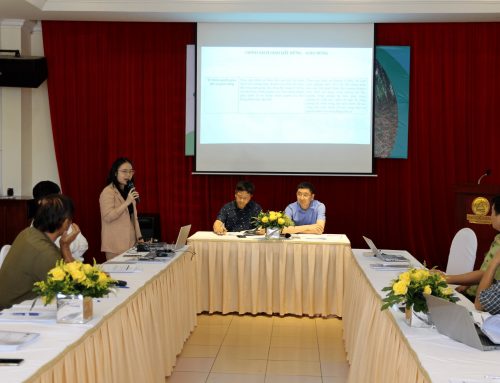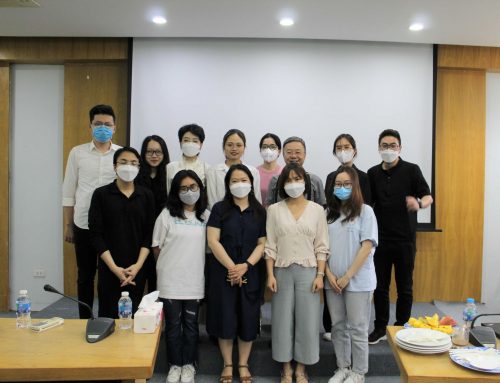Lai Chau, March 17th 2016 – the Consultative Institute for Socio-Economic Development of Rural and Mountainous Areas (CISDOMA) and its partner, Aide et Action Vietnam, with the support from the local authorities, launch the project ‘Promoting inclusive and relevant early childhood care and education for ethnic minority and disadvantaged children in Vietnam.’ The project is co-funded by the European Union (EU) with the total budget of EUR 531,698 (approximately 13 billion Vietnamese Dong). The launching ceremony is attended by representatives from delegation of the European Union to Vietnam, Lai Chau Department of Foreign Affairs, Tam Duong District People’s Committee, different departments of Tam Duong district, Vietnam Institute of Educational Sciences and the media.
The three year project (2016-2018) aims to enable ethnic minority and disadvantaged children living in remote areas to access high quality, relevant pre-school and early primary education through the development and incorporation of enhanced teaching pedagogies, the promotion of active parental participation in the education process, and the effective advocacy of policymakers on best practices.
“The first eight years of a child’s life is critical to their future prospects. We are delighted to have received this grant from the EU which provides us with the chance to improve early childhood education for children in one of the most disadvantaged and remote provinces of the country, Lai Chau. We believe the opportunity to demonstrate the effectiveness of supplementary bilingual materials in improving the quality of education for children from ethnic minority groups is a particularly exciting one, not just for the target communities but for the long-term benefit of the country as a whole,” says Mr. Prasert Tepanart – Regional Director, Aide et Action International – South East Asia and China.
As one of the poorest districts of Lai Chau province, Tam Duong district is home to many ethnic minorities including Dao, Thai, and Mong, with a population (90%) that dominates the three communes of Ta Leng, Nung Nang and Khun Ha where the project is carried out. Children from Mong ethnic group have very limited access to education in their mother tongue. The language barrier coupled with poor quality of teaching and family economic difficulties often mean that ethnic minority children are excluded from active learning, which contributes to their poor school performance, high school dropout rates and limited opportunities throughout their lives.
“Over the last 15 years, Vietnam has achieved the universal primary education and the country is moving towards the universal lower secondary education. However, there are still remaining challenges. As recognized by the Government, Vietnam still needs to rigorously upgrade the quality of education to strengthen its human capital and meet the demands of a growing economy with an international outlook. The challenge is to overcome the inequality in the access and quality of education that persists among different ethnic and socio-economic groups and diverse geographical regions. Early childhood education is critical in preparing children to enter and succeed in the classroom. We hope that the child-centered and inclusive approach of this project can contribute to the recognition of the importance of pre-school and primary education for ethnic minority children and the improvement of the quality of education overall as this is the foundation to improving people’s lives and to sustainable development,” Ms. Daniela Forte, Programme Officer for Governance and Rule of Law at the European Union Delegation to Vietnam emphasized.
The development and integration of Mong and Vietnamese language content into the classroom covering gender equality, life skills, disaster preparedness, child rights, local culture and customs will be a significant step towards ensuring the safety of children and promoting their rights. “The project is expected to enable the children to receive more relevant teaching in their mother tongue, which will improve the likelihood of effective transition from pre-school into primary school and beyond, while also promoting understanding among ethnic groups in the population and preserve the local indigenous culture”, Mr. Dinh Quang Tuan – Vice Director, Lai Chau Department of Foreign Affairs, states.




